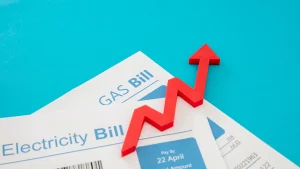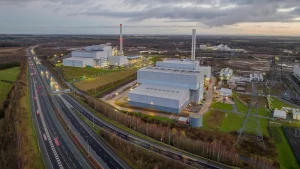The UK energy sector is undergoing a rapid transformation, driven by a combination of factors such as climate change, technological advancements, and evolving government policies. As we move into the future, several key trends will continue to shape the landscape of the UK energy sector.
The Rise of Renewable Energy
The Growth of Wind Power in the UK: A Bright Future
Wind power has become a significant contributor to the UK’s energy mix, and its growth trajectory is set to continue. While precise figures for 2025 and beyond can fluctuate based on various factors like government policies, technological advancements, and economic conditions, the overall trend is positive.
Historical Growth and Current Trends:
- The UK has experienced substantial growth in wind power capacity over the past decade.
- Offshore wind, in particular, has seen rapid expansion, with large-scale projects coming online.
- The UK government’s commitment to renewable energy and its supportive policies have played a crucial role in driving this growth.
Projected Growth and Energy Production:
While specific projections can vary, it’s reasonable to expect continued growth in wind power generation in the UK. Several factors contribute to this optimistic outlook:
- Government Support: Continued government support, including subsidies and favorable policies, will encourage further investment in wind power.
- Technological Advancements: Improvements in turbine technology are increasing efficiency and reducing costs.
- Maturing Supply Chain: A well-established supply chain can facilitate faster and more cost-effective deployment of wind farms.
By harnessing the power of the wind, the UK is moving towards a cleaner and more sustainable energy future.Sources and related content
The Growth of Solar Power in the UK: A 2025 Perspective
The UK’s solar power sector has experienced significant growth in recent years, driven by factors like government policies, falling costs, and increasing public awareness of climate change. As we move into 2025 and beyond, this trend is expected to continue.
Growth Rate:
While specific figures for 2025 are subject to market dynamics and policy changes, the UK solar industry has been growing at a substantial rate. In recent years, the industry has seen double-digit growth rates, and this trend is likely to persist. However, the exact growth rate will depend on various factors, including government support, technological advancements, and economic conditions.
Energy Production:
The amount of energy produced by solar power in the UK is steadily increasing. As more solar panels are installed on rooftops and in solar farms, the overall energy generation capacity will continue to grow. While it’s difficult to provide a precise figure for 2025, industry experts predict that solar power will play a significant role in the UK’s energy mix.
Factors Driving Growth:
- Government Policies: The UK government has set ambitious targets for renewable energy, including solar power.
- Falling Costs: The cost of solar panels and installation has decreased significantly, making solar power more affordable for both residential and commercial properties.
- Technological Advancements: Improvements in solar panel efficiency and battery storage technologies are enhancing the performance and reliability of solar systems.
- Public Awareness: Growing public awareness of climate change and the benefits of renewable energy is driving demand for solar power.
To get the most accurate and up-to-date information on the growth rate and energy production of solar power in the UK for 2025, it’s recommended to consult the latest reports from industry organizations like Solar Energy UK or the Department for Energy Security and Net Zero.
The Growth of Other Renewables in the UK: Hydropower, Tidal Power, and Biomass
While wind and solar power often dominate the renewable energy conversation, other renewable sources like hydropower, tidal power, and biomass are also making significant contributions to the UK’s energy mix.
Hydropower:
- Growth Rate: Hydropower, particularly in the form of hydroelectric dams, has been a relatively stable source of renewable energy in the UK. While significant growth may not be as rapid as with other renewables, it remains a reliable and consistent source of clean energy.
- Energy Production: Hydropower plants in the UK generate a substantial amount of electricity, contributing to the country’s renewable energy targets.
Tidal Power:
- Growth Rate: Tidal power, which harnesses the energy of tides, is still in its early stages of development in the UK. However, with ongoing technological advancements and government support, it has the potential for significant growth.
- Energy Production: While current tidal power projects are relatively small-scale, they are demonstrating the potential for this technology to contribute to the UK’s energy mix.
Biomass:
- Growth Rate: Biomass, which includes energy from wood, agricultural waste, and other organic materials, has experienced steady growth in the UK.
- Energy Production: Biomass is used to generate electricity and heat, contributing to the country’s energy supply and reducing reliance on fossil fuels.
Overall, while the growth rate of these other renewable sources may not be as rapid as wind and solar, they play a vital role in diversifying the UK’s energy mix and contributing to a more sustainable energy future.
It’s important to note that the specific growth rates and energy production figures for these technologies can vary from year to year, influenced by factors such as government policies, technological advancements, and economic conditions. To get the most accurate and up-to-date information, it’s recommended to consult the latest reports from organizations like the Department for Energy Security and Net Zero (DESNZ) or industry associations.
Energy Efficiency
- Smart Grid Technology: Advanced metering infrastructure (AMI) and smart grid technologies are enabling better energy management and reduced energy waste.
- Energy-Efficient Buildings: Building regulations are becoming stricter, encouraging energy-efficient construction and retrofitting.
- Behavioral Change: Public awareness campaigns and energy-saving tips are promoting energy-conscious behavior.
Decarbonization of Transportation
- Electric Vehicles: The transition to electric vehicles is accelerating, reducing reliance on fossil fuels.
- Hydrogen Fuel Cell Vehicles: Hydrogen-powered vehicles offer a clean and efficient alternative to traditional combustion engines.
Energy Storage Solutions
- Battery Storage: Battery storage systems are becoming more affordable and efficient, enabling the storage of excess renewable energy.
- Other Storage Technologies: Innovative technologies like pumped hydro storage and compressed air energy storage are being explored.
Digitalization of the Energy Sector
- IoT and AI: Internet of Things (IoT) and artificial intelligence (AI) are transforming the energy sector, enabling data-driven decision-making and predictive maintenance.
- Cybersecurity: As the energy sector becomes increasingly digitalized, cybersecurity is a growing concern.
Government Policies Shaping the UK Energy Landscape
Government policies play a crucial role in shaping the UK’s energy landscape, particularly for businesses. In 2025 and beyond, these policies will continue to influence the costs, availability, and sustainability of commercial energy.
- Climate Change Legislation: Stricter emissions targets are driving the transition to low-carbon energy sources.
- Energy Efficiency Initiatives: Government programs encourage businesses to improve energy efficiency and reduce costs.
- Renewable Energy Support: Policies support the development of renewable energy projects.
- Grid Modernization: Investments in smart grid technology are improving grid flexibility and enabling the integration of renewable energy sources.
By embracing these trends and adapting to government policies, businesses can contribute to a more sustainable future while optimizing their energy consumption and reducing costs.





